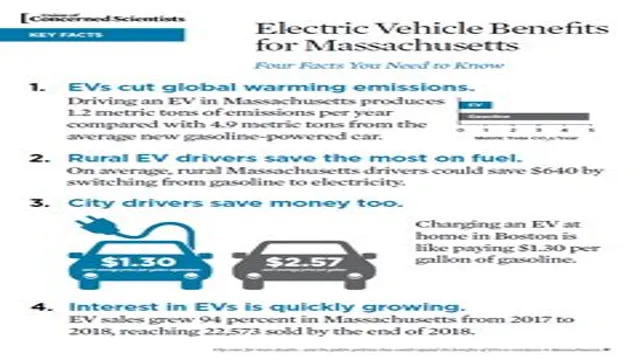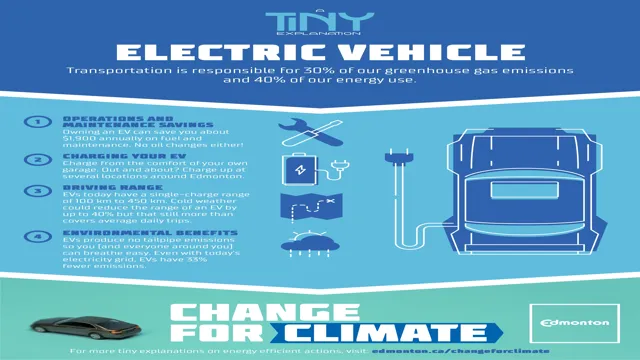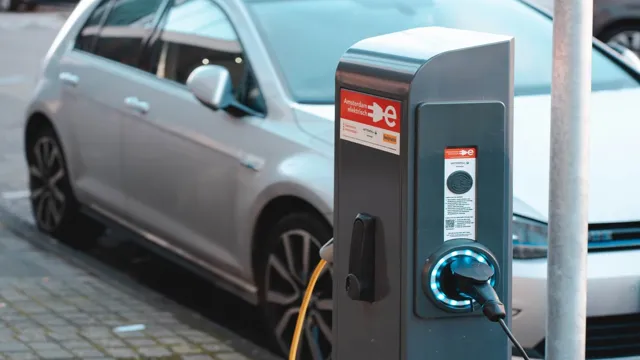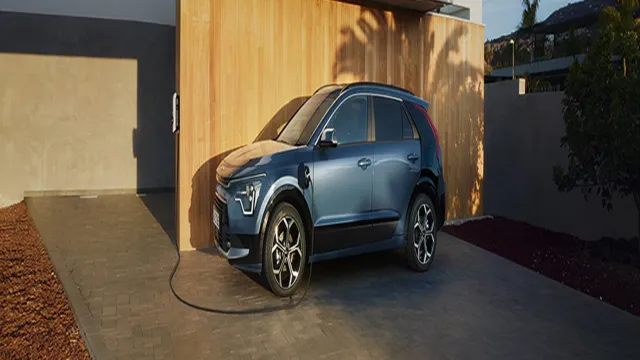Powering Up India’s Roads: Discover the Surprising Advantages of Electric Cars
Are you looking for a more eco-friendly alternative to your gas-guzzling vehicle? Look no further than electric cars! In India, the benefits of electric cars are becoming more and more apparent. Not only are they kinder to the environment, but they can also save you money in the long run. With their technology advancing rapidly, now is the perfect time to make the switch and reap the benefits.
In this blog, we’ll take a closer look at the advantages of electric cars in India and why they are a smart choice for both the environment and your wallet.
Reduced Pollution and Better Air Quality
Electric cars have undoubtedly revolutionized the way we drive and the impact of cars on our environment. With conventional cars, one of the critical environmental impacts is air pollution. However, electric cars are helping to reduce pollution significantly and improve air quality in India.
Since electric cars run on electricity, they do not emit pollutants that cause harmful effects on human health and the environment. Ride-hailing companies such as Ola and Uber have taken significant steps towards electrification by adding electric vehicles to their fleets. The Indian government also offers incentives to encourage adoption, such as tax breaks, subsidies, and no road tax and registration fees for the first 100,000 electric two-wheelers and 20,000 passenger EVs.
With the growing concern for sustainable living in India, electric cars will undoubtedly play a pivotal role in ensuring cleaner air and better health for all. By embracing electric cars, we can reduce pollution significantly, and this can have positive ripple effects on our ecosystem.
Less Dependence on Fossil Fuels
With the world becoming more aware of the negative impacts of using fossil fuels, many countries are starting to shift towards renewable energy sources like solar, wind, and hydro. This shift will help in reducing pollution and improving the air quality in our environment. Fossil fuels produce greenhouse gases that are responsible for climate change and air pollution.
The pollutants from burning fossil fuels contribute to asthma, heart diseases, and various respiratory and cardiovascular illnesses. By reducing our dependence on fossil fuels, we will be able to achieve better air quality. It will lead to a healthier environment for us to live in, benefiting our physical and mental well-being.
Switching to renewable energy sources is undoubtedly a big step towards a cleaner future. The use of solar panels and wind turbines, for example, generates no emissions at all, reducing the amount of harmful pollutants in the air. With numerous benefits to our environment, reducing our reliance on fossil fuels is essential today.
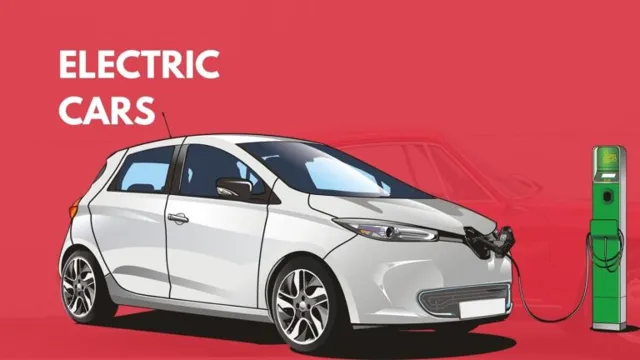
Lower Operating Costs
Lower Operating Costs Reduced Pollution and Better Air Quality One of the most significant benefits of reducing pollution and improving air quality is the lower operating costs that it can bring. Businesses across industries are looking for ways to reduce their operating costs, and improving air quality is an effective way to achieve this. By implementing eco-friendly practices, companies can save on energy and fuel costs.
In addition, reducing pollution can lead to fewer health problems among employees, resulting in less absenteeism and lower medical costs. Investing in air quality improvements can also lead to tax credits and subsidies, helping companies to further reduce their operating costs. Moreover, reducing contamination levels in the air leads to a better living environment, thus making it more appealing to consumers.
Consequently, a company that invests in reducing pollution and improving air quality is more likely to attract environmentally conscious customers. Fewer pollutants in the air also result in fewer issues with equipment degradation, meaning less frequent maintenance and repair costs for machinery. All in all, by putting their efforts towards achieving better air quality and reducing pollution, organizations can benefit from significantly lower operating costs and a better image.
Government Incentives and Subsidies
In India, there are several benefits of driving an electric car, including government incentives and subsidies that make it an affordable option compared to conventional petrol and diesel vehicles. The government is promoting the use of electric vehicles by offering tax rebates and exemptions, lower interest rates on loans, and subsidies for buyers. For instance, the Faster Adoption and Manufacturing of Hybrid and Electric vehicles in India (FAME India) scheme offers incentives to electric vehicle buyers as well as electric vehicle manufacturers and sellers.
The program aims to accelerate the adoption of electric vehicles by electrifying public transport and promoting the production of electric vehicle components in India. Additionally, some states in India offer additional incentives, such as waiving road tax and providing free charging stations. By opting for an electric car, not only can you contribute to the environment by reducing air pollution and reliance on fossil fuels, but you can also take advantage of these incentives and save money on your vehicle’s maintenance and operation costs.
Faster Adoption of EVs
Faster Adoption of EVs – Government Incentives and Subsidies Thinking of purchasing an electric vehicle (EV)? You may want to consider the government incentives and subsidies that are available to support the adoption of EVs. In many countries, including the US and the UK, the government is incentivizing individuals and businesses to switch to green cars by offering rebates and tax credits. These incentives reduce the overall cost of an EV and therefore make it more affordable for the average consumer.
Furthermore, some governments have invested heavily in charging infrastructure, which has helped to alleviate one of the major concerns for consumers considering the switch to an EV – the range of the vehicle. For example, in the US, drivers of new plug-in hybrid electric vehicles (PHEVs) and all-electric vehicles (EVs) can claim up to $7,500 in tax credits, making EVs more financially accessible. Similarly, in the UK, there is a grant of up to £3,000 available for eligible cars (up to a certain value) and up to £8,000 for eligible vans.
Additionally, the UK government has pledged to invest £500m in EV charging points – encouraging businesses and individuals to switch to electric vehicles, and significantly reducing range anxiety. Furthermore, in some areas, the government has been working with the private sector to offer even more incentives and subsidies, such as free charging points and reduced electricity rates for EVs. These measures are having a significant impact on the adoption of EVs, as many people who previously considered them too expensive are now able to seriously consider an EV as their next car purchase.
Governments are taking an active role in promoting EVs because they recognize the significant environmental benefits that arise from switching to zero-emissions vehicles. The adoption of EVs is no longer seen as a niche choice, but rather a necessity. With the help of government incentives and subsidies, the switch to electric is becoming increasingly accessible to people from all walks of life.
Now is the time to embrace the change and be part of the movement towards a cleaner, greener future!
Lower Taxes and Tariffs
Government subsidies and incentives are an effective way the state can boost the local economy by lowering taxes and tariffs to make it easier for businesses to operate. Small businesses tend to be the most impacted by these measures since they are usually struggling to make ends meet. A reduction in costs makes it easier for them to expand their operations, hire more workers, and invest in equipment and infrastructure.
Moreover, subsidies and incentives come in many forms, such as tax credits, grants, or low-interest loans that can provide start-ups with capital, access to specialized tools or knowledge, and reduced costs of production. However, the implementation of these measures must be strategic and focused to not benefit only a select few and result in corruption. Finding the right balance between incentivizing growth and maintaining a fair system is delicate, but it’s nonetheless necessary to drive economic growth and improve the livelihoods of all citizens.
Overall, government incentives and subsidies can be a powerful tool in lowering taxes and tariffs, which can help small businesses grow and increase economic activity within a region.
Free Charging and Parking
Free Charging and Parking is fast becoming a reality for electric car owners and it’s all thanks to the government incentives and subsidies offered to promote sustainable transportation. The government’s incentive program includes a grant for charging infrastructure installation, which translates to free charging for EV owners. The program also provides subsidies to EV manufacturers, making electric vehicles more affordable and accessible to the average consumer.
In addition, there are designated parking spaces reserved for EVs in cities and public parking lots, with free parking privileges for electric car owners. These incentives provide a significant motivation for car owners to switch to electric vehicles, and represent a significant step towards a cleaner, more sustainable future. So, are you ready to make the switch to an electric car and enjoy the benefits of free charging and parking?
Improved Driving Experience
One of the biggest benefits of electric cars in India is the improved driving experience that they offer. For one, electric cars are much quieter than traditional gas-powered vehicles, cutting down on noise pollution and providing a more peaceful ride. Additionally, electric cars have instant torque and acceleration, making them incredibly fun to drive and giving them an edge in stop-and-go city traffic.
Plus, without the need for a traditional transmission, electric cars offer a smoother and more seamless driving experience. Finally, electric cars are much cleaner and produce no emissions, making them an eco-friendly choice for those who want to reduce their carbon footprint. With all these benefits, it’s no wonder that more and more Indians are considering making the switch to electric cars.
Quieter and Smoother Ride
When it comes to driving, the experience can make all the difference. And nothing is more frustrating than a bumpy, noisy ride. Luckily, more and more cars today are designed to provide a quieter and smoother ride.
This can mean everything from better soundproofing technology to improved suspension systems. With a quieter and smoother ride, drivers are able to focus more on the road and less on the distractions around them. Plus, it just makes the driving experience more pleasant overall.
So, if you’re in the market for a new car, make sure to keep an eye out for these features. Your next drive could be one of the smoothest yet.
Greater Range and Charging Infrastructure
In recent years, the automotive industry has made significant strides in improving the driving experience for electric vehicle (EV) owners. One of the most significant improvements has been the expansion of range and the establishment of a widespread charging infrastructure. With longer battery life and improved charging capabilities, EV drivers no longer have to worry about running out of power on long trips or during daily commutes.
Additionally, the increase in charging stations across the country provides more convenience and accessibility for EV owners. This has helped to eliminate range anxiety and made owning an electric vehicle more practical and appealing to a broader audience. With these improvements, the future of electric vehicles is looking brighter than ever.
Sustainability and Conservation
Electric cars have become a popular trend in India over recent years, and their widespread adoption is set to bring significant benefits in terms of sustainability and conservation. One of the main advantages of electric vehicles is that they release zero emissions, making them a clean and green alternative to traditional petrol and diesel cars. By switching to electric cars, India could significantly reduce its carbon footprint and help combat air pollution – which is a major problem in many urban areas.
Furthermore, electric cars are much quieter than petrol cars, helping to reduce noise pollution. Additionally, electric cars have the potential to be much cheaper to run than traditional cars, thanks to their lower fuel costs. Although electric cars require electricity to recharge, they can still be powered by renewable energy sources, such as solar or wind power, providing a truly sustainable transport option.
Overall, the benefits of electric cars in India are clear, and with the right infrastructure in place, they could play a significant role in promoting sustainability and conservation in the country.
Conclusion
In conclusion, electric cars are not just a trend or a luxury in India, but rather a smart and eco-friendly solution to our transportation needs. The benefits of electric cars are many – reduced emissions, lower fuel costs, improved air quality, and decreased dependence on oil imports, to name a few. Plus, with increasing government incentives and a growing charging infrastructure, owning an electric car in India is becoming more accessible and affordable than ever before.
So why not switch to an electric car and help create a cleaner and brighter future for ourselves and our beloved country?”
FAQs
What are some benefits of owning an electric car in India?
There are several benefits of owning an electric car in India, including reduced air pollution, lower fuel costs, and access to government incentives and subsidies.
Are electric cars more expensive than traditional cars in India?
Initially, electric cars may be more expensive than traditional cars in India. However, over the long run, you can save significant amounts on fuel costs and maintenance.
What electric car models are available in India?
There are several electric car models available in India, including the Mahindra e2oPlus, Tata Tigor EV, and Hyundai Kona Electric.
Can you charge an electric car at home in India?
Yes, you can charge an electric car at home in India using a regular power outlet. However, it is recommended that you install a dedicated charging station for faster charging times.
